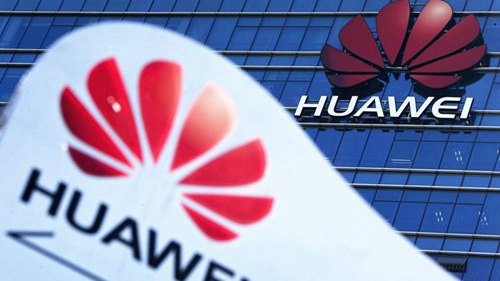
Australia and Canada, the puppets dancing on the ends of America's strings. [Photo/CGTN]
Editor's note: CGTN's First Voice provides instant commentary on breaking stories. The daily column clarifies emerging issues and better defines the news agenda, offering a Chinese perspective on the latest global events.
Australian and Canadian military planes have been busy getting themselves into trouble far from home.
Australia's Department of Defense claimed that a P-8 plane was intercepted by a Chinese J-16 aircraft on May 26 when it was doing "routine maritime surveillance" in the South China Sea. The Canadians said that their jets were buzzed by China's in Asia when they were participating in the UN-backed monitoring of sanctions placed on the DPRK. China's actions have been dangerous, the Chinese are doing harm – these are the party lines for them.
As two members of the "Five Eyes alliance," Australia and Canada have been on the frontline of America's geopolitical encirclement of China. Under former Australian Prime Minister Scott Morrison's reign, Australia had been in lockstep with the United States' rhetoric and accusations – whether it's on the COVID-19 origins tracing, the human rights "issues" in Xinjiang or the "threat" that China's development presents to the West. Canada has been arguably more aggressive. It detained Chinese telecommunications company Huawei's CFO Meng Wanzhou for nearly three years at the behest of the United States. It was America's foot soldier in its quest to claim technological dominance over China.
These military actions – the violation of Chinese sovereignty and using UN resolution as a pretext to step up reconnaissance and provocations against China – are on some level par for the course. With the United States sitting back as the puppet master, Australia and Canada have to do some of its dirty work to stay in the U.S.' good graces and give themselves the illusion of being "equal partners" of the United States.

The logo of China's tech giant Huawei. [Photo/Xinhua]
But what they don't realize, or pretend to ignore, is that they are no different from other countries that feel uncomfortable if forced to choose between China and the United States. Asian countries have been very clear that they don't like to choose between the two because the differences in nature of the relationship. Both China and the U.S. are indispensable in their future development.
It's the same case for Australia and Canada. Australia may cozy up to the United States in security matters, but it has trade relations with China worth more than $230 billion, which accounts for more than one-fourth of Australia's foreign trade. For Canada, despite its close – literal and figurative – ties with America, China is still its second largest trade partner with more than $90 billion of trade volume.
And most importantly, by aligning so closely with the United States, Canada and Australia had handed over their foreign policy initiative to the United States. Despite all the conflicts between China and the U.S., both countries are acutely aware that their respective development and global development hinge on China and the U.S. working together. Once China and the U.S. find a new equilibrium for their relationship, Australia and Canada will find themselves in a really embarrassing position. They will be caught between the U.S. – the country that led them into a deteriorating relationship with China – and China, the country they harassed that also happens to be one of their biggest trade partners.
That's the outcome for all the pawns and cannon fodder throughout history. They are dispensable to the man behind the curtain. If they seek to avoid that fate, they must find their own path – logical, reasonable and beneficial path – in moving forward with their relationship with China.

 中文
中文



